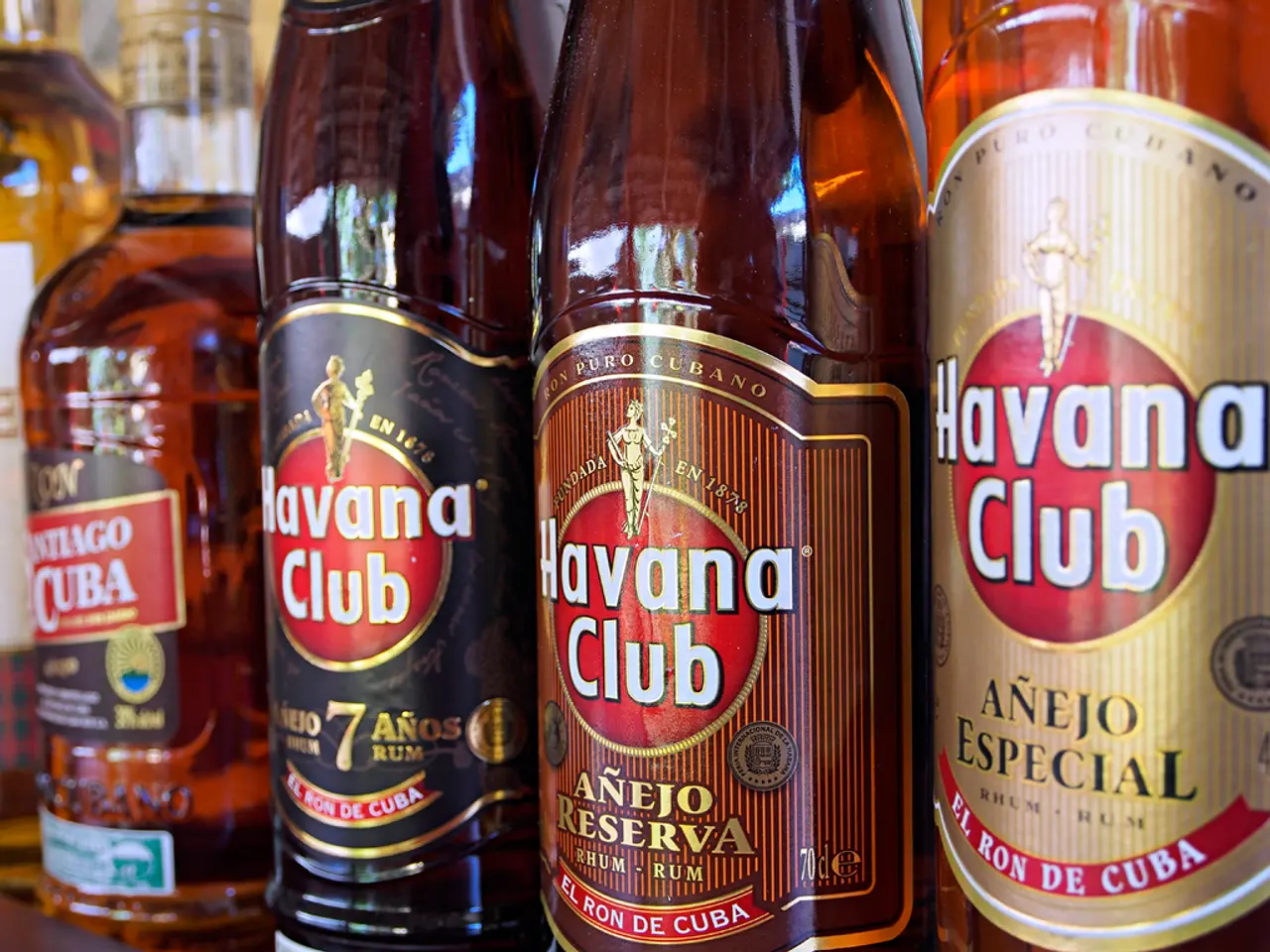Beverages that may help asthma symptoms: Identified options
Asthma, a common respiratory condition, can be managed effectively with a combination of medical treatments and lifestyle changes. One aspect of this lifestyle approach is the choice of drinks.
Certain drinks can worsen asthma symptoms, while others may offer relief. Alcohol, particularly wine, beer, and cider, can contain triggers such as histamines and sulfites, which may exacerbate asthma symptoms [1]. Dehydration, often caused by excessive consumption of caffeinated drinks or black tea, can also make asthma symptoms more prevalent [2].
However, some drinks can help manage asthma symptoms. For instance, mullein tea, known for its anti-inflammatory properties, may reduce coughing and loosen mucus [1]. Ginger tea, with its anti-inflammatory and antibacterial properties, can reduce throat inflammation and coughing [2][5]. Peppermint tea, containing menthol, can open airways and relieve congestion, and has antimicrobial effects [2]. Turmeric milk, rich in curcumin, decreases airway inflammation, helping to ease asthma symptoms [3][5].
Caffeine, found in coffee, tea, certain soft drinks, and cocoa, may help lessen asthma symptoms. A study showed that consuming small amounts of caffeine could improve lung function for up to 4 hours [6]. However, a high intake of caffeine can have negative effects, such as nervousness, anxiety, and reduced quality of sleep [7].
Hydration is crucial in managing asthma, so choosing caffeine-free herbal teas and anti-inflammatory drinks is advisable. Avoiding beverages high in sulfites or those that promote reflux is also beneficial, as reflux may worsen asthma symptoms [4][5].
Fruits and vegetables, rich in vitamins and fibre, may have anti-inflammatory effects on the body, potentially reducing asthma symptoms. Foods containing vitamin D, vitamin E, and high fibre may be particularly beneficial [8]. A 2020 study found that a light to moderate intake of coffee or tea reduced the risk of adult-onset asthma [9].
Exercise, while beneficial for health, can reduce airway hydration, increasing the risk of the airways constricting and leading to asthma symptoms [10]. More research is necessary to fully understand the possible links between sugary drinks and asthma [11].
It's essential to consult a healthcare professional for personalised advice on managing asthma symptoms through diet and drink choices. A doctor may recommend a combination of medical treatments and home remedies, including bronchodilators, controller medications, biologics, and lifestyle changes like avoiding triggers, smoking, and maintaining a moderate weight [12].
In conclusion, while some drinks can worsen asthma symptoms, others may offer relief. Choosing the right drinks, along with a balanced diet and regular exercise, can be an effective part of managing asthma. Always consult a healthcare professional for personalised advice.
[1] Mullein for Asthma [2] Ginger for Asthma [3] Turmeric for Asthma [4] Asthma and Hydration [5] Sulfites and Asthma [6] Caffeine and Lung Function [7] Caffeine and Asthma [8] Diet and Asthma [9] Coffee and Asthma [10] Exercise and Asthma [11] Sugary Drinks and Asthma [12] Asthma Management
- Some personas may find relief from asthma symptoms by choosing drinks such as mullein tea, ginger tea, peppermint tea, or turmeric milk, which have anti-inflammatory properties and can aid in reducing coughing, loosening mucus, reducing throat inflammation, and easing airway inflammation.
- Naive individuals might think alcoholic beverages like wine, beer, and cider are harmless, but they can exacerbate asthma symptoms due to their histamine and sulfite content.
- In the context of health-and-wellness, avoiding dehydration by consuming caffeine-free herbal teas and anti-inflammatory drinks is beneficial for managing chronic-diseases like asthma, as dehydration can make asthma symptoms more prevalent.
- An antihistamine, often used to treat allergies and asthma symptoms, may be found in certain medications, but it can also be unintentionally consumed through alcoholic beverages.
- A person with asthma should consider incorporating drinks like mullein tea, ginger tea, peppermint tea, turmeric milk, caffeine in moderate amounts, and hydrating herbal teas into their fitness-and-exercise and nutrition regimen, while avoiding alcoholic beverages and caffeinated drinks in excess, as they can worsen asthma symptoms.




